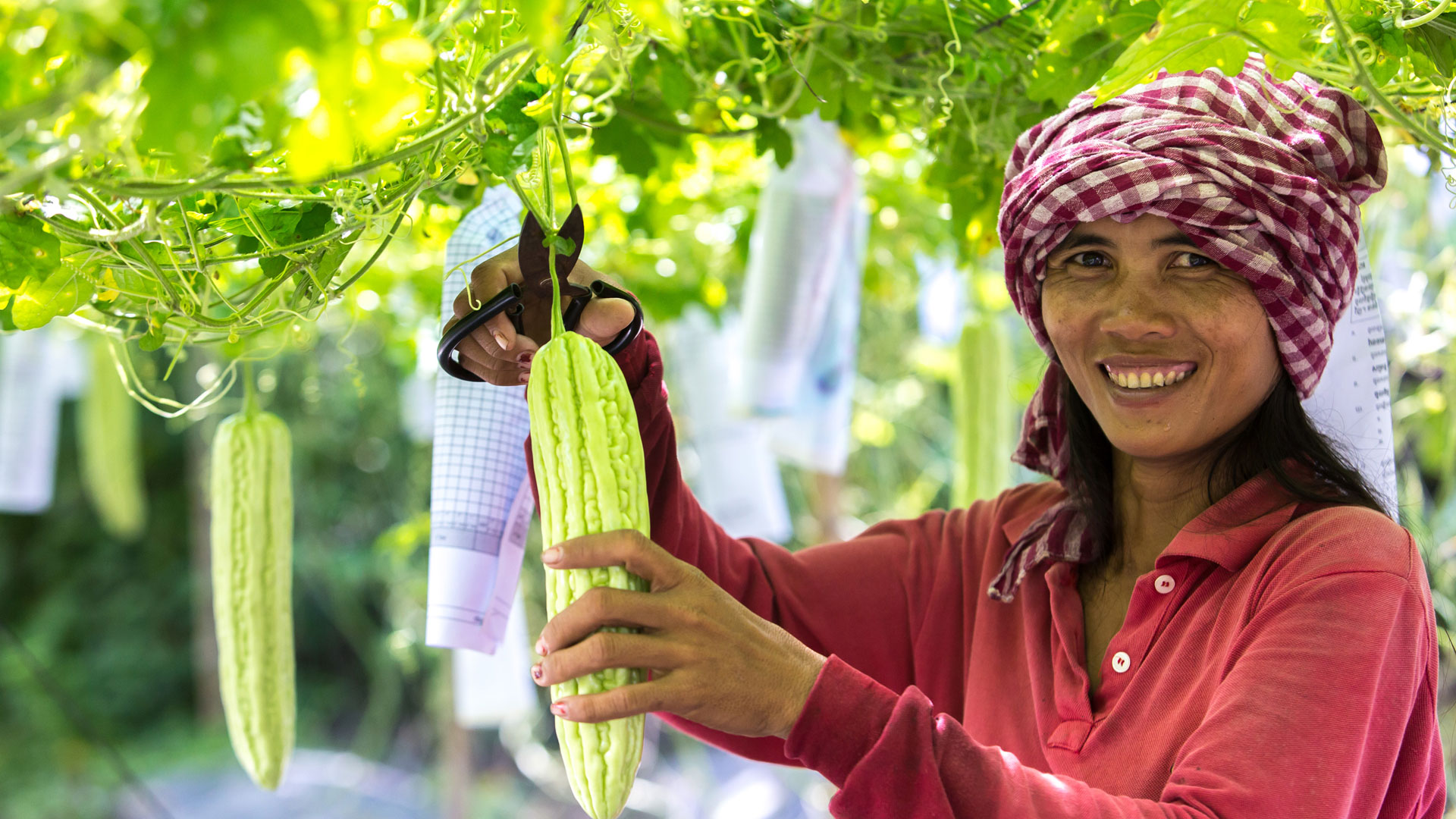Improving Value Chains to Boost Agriculture
Unrealized Potential from Agriculture
Cambodia’s economy mainly rides on the back of its agriculture sector, with rural communities making up 76% of the country’s total population. Agriculture is also Cambodia’s second-largest export producer after the textile and garment industry, constituting $533 million (over 5% of total export) in 2016. However, the country’s agriculture exports are mostly raw and their value addition occurs in other countries.
The limited value addition in agriculture means that only 10% of the total agricultural outputs are processed in the country. The sector’s value chain is characterized by poor access to finance, weak agriculture value chain links, and deteriorating farm-to-market roads. These issues became even more challenging when the COVID-19 pandemic struck in 2020. The pandemic severely disrupted agricultural supply chains due to restrictions on the movement of people and goods, causing lost income and market opportunities for farmers and agribusinesses.
Building on the results of a cofinanced technical assistance, Cambodia: Agricultural Value Chain Infrastructure Improvement Project, ADB approved in November 2020 a loan of $70 million for the Cambodia: Agricultural Value Chain Competitiveness and Safety Enhancement Project. ADB’s financing partners—the Japan Fund for Poverty Reduction, Agence Française de Développement, and ASEAN Infrastructure Fund—cofinance the project, which is set to conclude in 2027.
How Agricultural Value Chains Can Be Optimized
The project will strengthen the value chains of competitive agricultural products—cassava, mangoes, cashew nuts, vegetables, and native chickens—in the provinces of Kampong Cham, Kampong Thom, Oddar Meanchey, Preah Vihear, Siem Reap, and Tboung Khmum.
Specifically, the safety and financing of agricultural value chains will be strengthened to make financing accessible to farmers and agro-enterprises. Value chain connectivity will also be improved. To do this, rural farmers will be given access to credit for agro-enterprises and agricultural cooperatives. Thus, viable market links among these enterprises and cooperatives will be facilitated with a focus on enhancing food safety and quality.
The project’s participating financial institutions will provide the agro-enterprises and agricultural cooperatives mechanisms to access capital. Some 230 agricultural cooperatives will be engaged to address critical bottlenecks in the value chains. This engagement includes improving their production capacity through demonstration farms and helping these cooperatives establish business partnerships with participating agro-enterprises. The goal is for these cooperatives to continue to stay engaged for sustainable value chain linkages.
Mobility of agriculture products will also be promoted by improving 110 kilometers of farm-to-market roads. Twenty-two clay roads will be upgraded with climate change adaptation measures incorporated into the road improvement designs. The project has a strong gender mainstreaming component, promoting women’s participation in developing and delivering outreach, education, and community activities.
Looking to Results
Cambodia’s agriculture sector will have a stronger value addition in post-harvest, logistics facilities, improved agricultural production and services infrastructure, and enhanced business partnership among value chain stakeholders. These, including improved farm-to-market connectivity, are projected to benefit about 230 agricultural cooperatives, about 27,000 households, and about 50 agribusinesses in the project areas.
Cost
$110.1 million
- ADB $70 million
- Government Counterpart $7.1 million
Cofinancing Partners
- Japan Fund for Poverty Reduction (Grant) $3 million
- Agence Française de Développement (Loan) $25 million
- ASEAN Infrastructure Fund (Loan) $5 million
Dates
Approval Date 26 November 2020
Signing Date 7 December 2020
Completion Date 31 August 2027

